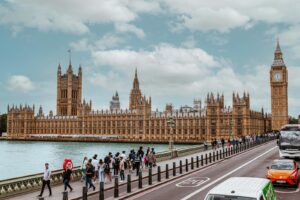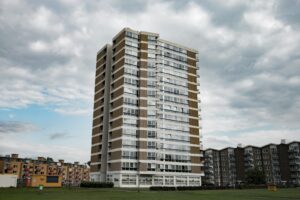Council spending on housing and planning services has more than halved since 2010, according to a new report out today.
The report by the cross-party housing, communities and local government committee warns a decade of funding cuts and continued uncertainty has left many council services at breaking point.
It warns that the current social care system is ‘on verge of collapse’ as it struggles to cope with rising demand, leaving councils with few options other than to cut back on ‘non-essential’ services, like housing.
In particular, the report notes that net expenditure on planning and housing services has more than halved since 2010, while net spending on cultural and leisure services is down more than 40%.
The report also warns the situation is likely to be exacerbated by the government’s failure to set out plans for how councils will be funded after the end of this financial year (April 2020).
The report also notes that a number of local authorities have turned to commercial property investments to make up the shortfall in funding.
Many of these acquisitions have been funded by loans from the Public Works Loans Board, which offers councils low-interest loans over long periods of time.
According to a submission from the Bureau of Investigative Journalism, the number of councils investing in commercial property has doubled in the last two years.
The Bureau estimates councils spent £1.8 billion on property investments in 2017/18 alone.
During the committee’s inquiry into the subject of local government finance, Rob Whiteman of CIPFA agreed that some of this borrowing had gone too far.
Mr Whiteman told MPs that borrowing for services and to regenerate the local economy was a ‘good thing’ but there had been some cases of ‘excessive borrowing’ to generate income.
He cited the example of’ ‘Spelthorne, a district council with a £30 million turnover that has borrowed £1 billion in order to invest commercially’.
‘There is a disconnect between the services taxpayers expect their local authorities to provide and the level of service possible under current government funding,’ said committee chair, Clive Betts.
‘People expect well maintained roads, regular refuse collections and cultural services, yet funding rarely stretches beyond meeting the urgent needs of social care services.’
Commenting on the committee report, Localis chief executive Jonathan Werran said: ‘Central to the ability to govern effectively is the ability to tax and spend — powers sorely lacking in UK local government, which has increasingly become a mere delivery arm for the central state.
‘In today’s political environment, and factoring the NHS funding boost, local government can’t expect much more from the spending review than more of the same, although perhaps with some enticing cash pledges to scrape the barnacle of social care funding off the boat.
‘However, with the prospect of an imminent Brexit general election, it is incumbent on the sector to seek to make local government funding and the question of how the nation goes about funding our vital and valued local services an issue of genuine importance to prospective voters on the national stage.’
Photo Credit — Free-Photos (Pixabay)
















Leave a Reply